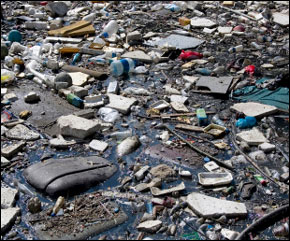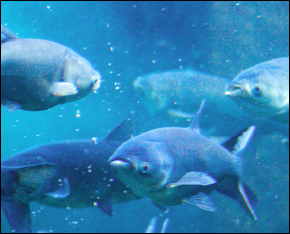Medications Discarded in Landfills May Be Contaminating Maine’s Water
A survey released in Maine finds trace amounts of pharmaceuticals present in landfill leachate.
A survey from the Maine Department of Environmental Quality has revealed that traces of medications like birth control, antidepressants, and pain relievers were found in the liquid that drains from landfills, the Huffington Post reports.
This contaminated water is known as leachate. Most Maine landfills have systems that collect and transport leachate to wastewater treatment facilities where the liquid is treated and then pumped into rivers.
Expired or unused medications are usually discarded in landfills. This is considered a better form of disposal than flushing, because wastewater treatment facilities in Maine are not equipped to remove medical contaminants from the liquid.
But if the leachate contains traces of medications, those medications will still be present after the water is treated and pumped back into rivers.
While Maine does not draw any drinking water directly from rivers that receive treated leachate wastewater, this could potentially be an issue for other states.
These kinds of toxins can be harmful to some types of aquatic life. But lobbying organization,Pharmaceutical Research and Manufacturers of America (PhRMA) argue that the amount found in the environment are too small to pose a significant threat to the safety of drinking water.
“The amounts of pharmaceuticals (in the environment) are infinitesimally small. We’re talking about two drops in an Olympic-size swimming pool. Those two drops are much lower than any doses that would have an effect on humans,” said Marjorie Powell, senior assistant general counsel at PhRMA told the Associated Press.
PhRMA does not support a newly proposed bill in Maine that would call for manufacturers to fund the collection and disposal of unused medications.
Meanwhile the Office of National Drug Control Policy has issued suggestions on how to safely dispose of unused prescriptions or expired medications. The organization suggests first checking to see if your local pharmacy has a “take back” program or if your community’s hazardous waste collection program accepts medications. If neither of these programs are available, they recommend removing medications from their original containers, mixing them with undesirable substances such as used coffee grinds or kitty liter and then placing the mixture in a seal-able container or bag before putting them in landfills.
Sources: Associated Press, Huffington Post, and Federal Guidelines: Proper Disposal of Prescription Drugs









Leave a Reply
Want to join the discussion?Feel free to contribute!